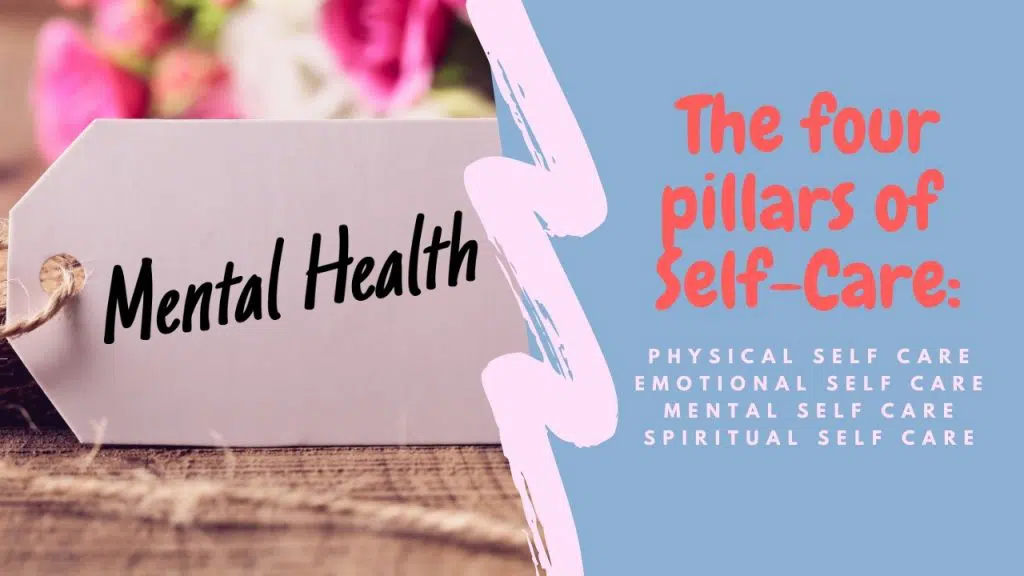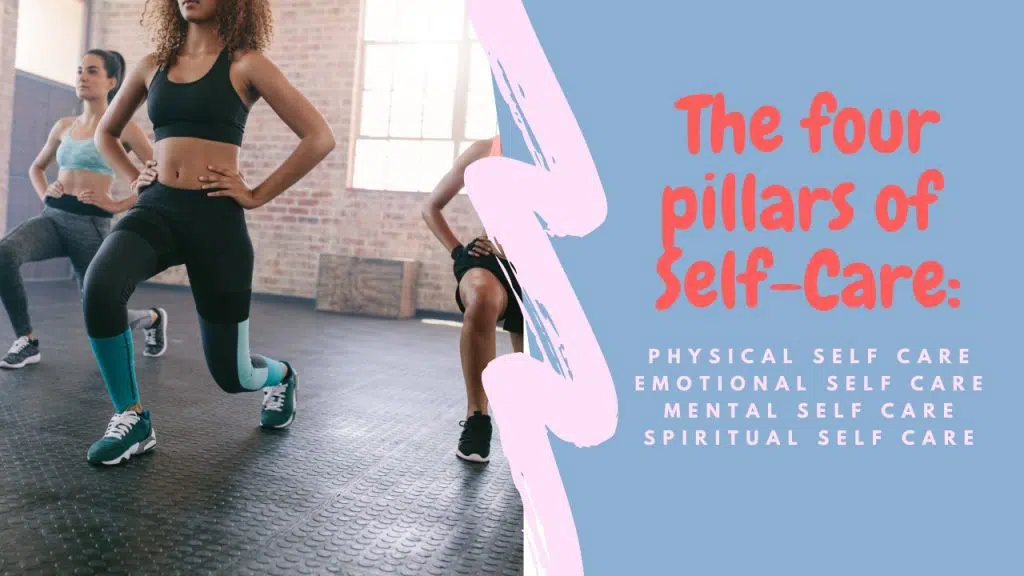Self-care is a series of activities which you perform to protect your physical, mental, emotional, and spiritual health. It’s about taking care of yourself, doing things that improve your mood and ease anxiety, and maintaining optimal well-being. True health and well-being are much more than the absence of injury, disease, or infirmity, but rather it’s a state of wholeness between mind, body, soul, and our environment. In a simple term, self-love = Self-care. Below are the four major pillars of self-care that you must not take with levity hands if you want to live a healthy life.
Physical Self-care
Physical self-care is probably the most common self-care we know, but it also means so much more. It’s so important because it involves overall healthy lifestyle, healthy eating, maintaining body hygiene, regular exercise, taking medication for physical and mental illnesses, taking care of your health and well-being. Physical self-care also means not negating your physical needs and not being over – self-medicating. It means not abusing drugs, alcohol or anything else that actively harm your body or makes you feel unhealthy.
Considering the fact that the mind, the soul and the body are naturally linked, when you improve your physical self care, you will automatically experience greater mental and emotional well being. Regular exercise leads to the release of endorphins ( powerful chemicals that lift your moods and give additional energy) that trigger a constructive effect on the mind. Remember that physical self-care is not just about what you do, but also about doing things that give you pleasure. Something physical that will help your mind, soul and body. Bellow are some of the physical self care ideas you can incorporate to improve your physical, mental and emotional health:
- Adding exercise to routine – This will help release stress, improves memory, and also help you sleep better.
- Eating a healthy diet – This is important because poor diet can have severe effects on your well-being.
- Regularly engage yourself in physical activities you love, such as running, swimming, cycling, hiking, yoga, etc.
- Do some breathing exercise
- Get a massage on a routine basis.
- Make restful sleep a number one priority—go to bed early and rise early.
- Take care of your appearance. Wear something that makes you feel good and also boost your confidence.
Emotional Self-care

Do you know that how you deal with your feelings tells a lot about how much you cherish and care for yourself? It is a known fact that emotionally healthy people are those that are able to handle life’s challenges – people who are strong enough to recover from any setbacks quickly. Either we like it or not, anyone can undergo emotional health problems, and over a lifetime, most of us will. So, it’s of utmost importance to pay rapid attention to our emotional self-care because it will not only lead to physical and mental illness in us, but it will also adversely affect our loved ones.
Emotional self-care includes how we interact with other people, what kind of energy we allow into our space, and what limits we set for ourselves and others. Letting our emotions run wild, or at least recognizing our emotional state, is an important part of self-sufficiency. If you feel you are not able to be productive with your emotions and feel that they control your life, focusing on emotional self-care can help. To promote emotional self-care, you must set healthy boundaries with people and never let their emotions become your own. The fundamental purpose of emotional self-care is to ensure that you do not deplete your emotional reserves by trying to keep up with everything life throws at you. Spreading kindness is one of the considerable forms of emotional self-care, because it gives you something positive to think about and feel good about. When you practice this emotional self-care, you decide to be in the association of those who appreciate and support your emotions. Other strategies that have proven to be effective include:
- Always try something that makes you happy
- Manage stress – Techniques such as deep breathing, mindfulness meditation, or progressive muscle relaxation can help alleviate stress.
- Do something positive to release your anxiety, fear, pains, etc.
- Associate with people that can share your personal interest and avoid bad people as much as you can.
Mental Self care

The mind is one of the strange things that makes us human, and it affects not only the way the body works but also the physical self. Have you ever noticed that people who are always under stress look tired, uncomfortable and old more than their age? Very often, a lack of mental health leads to emotional difficulties and even affects physical health. People are exposed to stress in many forms and degrees, but stress, which is less than a good mental state, is one of the most common causes of depression, anxiety and depression.
To ensure that you take care of your mental health, you need to learn to observe mental self care. This will help you to recognize situations, events and people that stress you so that you know how to manage them best when you need to. Mental self care ideas include:
- Don’t hesitate to say “no” to others when you need time for yourself
- Read books and listen to music based on your mood
- Avoid stress stressing yourself as much as you can
- Avoid being with toxic people
- Always challenge every negative thinking – Negative thought will probably pop up from time to time, but the key is to recognize them and prevent them from dominating you.
Spiritual Self Care

Spiritual self-care is a set of rituals and practices that we do to promote our connection to our higher self. It consists of actions that we undertake to deepen the connection between ourselves and our “higher self” or the part of us that wants and needs to connect with something that is greater than ourselves. It is important to note that spiritual self-care does not necessarily have to be linked to a particular religion or spiritual practice. It doesn’t necessarily have to involve religion in any way, nor does it have to be focused on religion. Practicing spiritual self-care not only leads to greater inner peace but can also help us to live in greater alignment with our core values. It can also connect us to our true self, the real us. Here is just a shortlist of the practices that allow you to connect spiritually:
- Regular Meditation (Meditation is one of the most effective methods of connecting with the higher self because it has numerous benefits). This will help you to connect with your source, essence, spirit, and core of your being.
- Read religion or spiritual books
- Praying to the higher power you believe in
- Spreading kindness or helping those in needs

